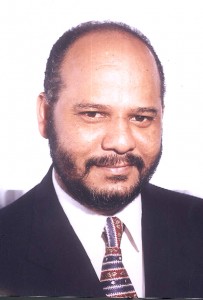Parliament yesterday passed the Evidence and Motor Vehicles and Road Traffic Amendment Bill 2008 which aims to curb driving under the influence of alcohol and makes provision for breathalyzer tests.

Under the new law, it will be an offence for any person who drives or attempts to drive or be in charge of a motor vehicle if he has consumed alcohol in such quantity that the proportion in his breath or blood exceeds the prescribed limit.
The prescribed limit according to the bill means 35 microgrammes of alcohol in 100 millilitres of breath and blood alcohol concentration of 80 milligrammes of alcohol in 100 millilitres of blood.
The amendment bill also provides for the certification of the accuracy of speedometers, radars and weighing devices by the appropriate public officer specified in the document. A document which certifies the accuracy of a speedometer, radar or weighing device may then be produced before the court. The document shall be prima facie evidence of all matters contained therein.
Clause 3 of the Bill amended the Motor Vehicles and Road Traffic Act, Capt 51:02, to make provision for the authorization of any member of the Guyana Police Force to operate a breath analyzing device or instrument on a driver of a motor vehicle if he is suspected of having consumed alcohol in such a quantity that the proportion in his breath or blood exceeds the prescribed limit.
Minister of Home Affairs, Clement Rohee in his presentation before the National Assembly said that “driving under the influence of alcohol is a serious problem in our country….and is a matter that has resulted in many deaths on our roads.” He also said “I believe that that this new law… will make drivers recognize their limitations in consuming alcohol… and persons are likely to park their vehicles when going on a drinking spree.”

PNCR-1G Parliamentarian Deborah Backer said that there must be a joining of “hands in this quest to make our roads safer because every accident that is caused by a drunk driver is completely avoidable if that person had been sober at the time, so it is something where we can have almost a hundred percent cure.”
Backer added that there should a public relations campaign to sensitize citizens as to what actually constitutes exceeding the prescribed limit. Nothing that the breathalyzer testing has been on the agenda for a decade now, she stated “…it is easy to legislate but what we are talking about is changing the social culture of a large section of our Guyanese people of all ethnicities.”
Minister of Transport and Hydraulics Robeson Benn said that “some of the public transportation vehicles and private cars are missiles driven by intoxicated persons…so this legislation should quickly address this situation.” Minister of Health Leslie Ramsammy said in his submission before the Assembly that road traffic accidents are wholly preventable “and we should endeavour to work to eliminate traffic accidents and traffic related deaths in our country.”
According to the Bill, any person who contravenes the law (drives or attempt to drive or be in charge of a motor vehicle while under the influence of alcohol), shall be liable on summary conviction to a fine of seven thousand five hundred dollars.
A person convicted of two consecutive offences shall “unless the court for special reason thinks fit to order otherwise and without prejudice to the court to order a longer period of disqualification, be disqualified for a period of twelve months from the date of the conviction from holding a licence; and a third conviction for a like offence, shall be permanently disqualified from holding or obtaining a licence.
If an accident occurs owing to the presence of a motor vehicle on a road, a constable in uniform on showing his authority as a member of the Police Force may require any person whom he has reasonable cause to believe was driving or attempting to drive the vehicle at the time of the accident to provide a specimen of breath for a breath test either at or near the place where the requirement is made or, if the constable thinks fit at a police station specified by him being the police station in reasonable proximity to that place.
According to the amendment there are circumstances where a driver at a hospital (after an accident) may only give a specimen of breath after certain conditions are met. A member of the Police Force shall not require any person to undergo a breath test or to submit to a breath analysis if that person has been admitted to a hospital for medical treatment and the registered medical practitioner in immediate charge of his treatment objects on the ground that compliance would be prejudicial to the proper care and treatment of that person. (Amar Panday)





